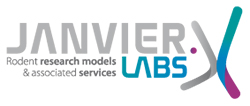Elimination of P. Aeruginosa in Mice by Treatment with Chlorine, and the use of Microbiological and PCR Analyses
DOI:
https://doi.org/10.23675/sjlas.v36i4.197Abstract
Unwanted micro-organisms in mice can jeopardize experimental protocols and should be eliminated if a colony becomes infected. The opportunistic bacterium Pseudomonas aeruginosa has been shown to cause infection in mice. In order to eliminate this bacterium from a specific-pathogen-free full barrier mouse area at our animal facility we treated mice with 7 ppm chlorine for 7 weeks and then with 10 ppm chlorine in the drinking water. The P. aeruginosa status of mice was examined by agar culture and PCR. The results show that 6 months after commencement of the treatment the colony was free of P. aeruginosa.
Downloads
Download data is not yet available.
Downloads
Published
01.12.2009
How to Cite
Mahabir, E., Bulian, D., Bensch, S., & Schmidt, J. (2009). Elimination of P. Aeruginosa in Mice by Treatment with Chlorine, and the use of Microbiological and PCR Analyses. Scandinavian Journal of Laboratory Animal Science, 36(4), 355–361. https://doi.org/10.23675/sjlas.v36i4.197
Issue
Section
Articles







